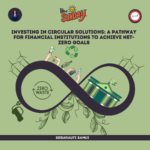- Home
- ArthNivesh
- Finance Forum
- Samnidhy
- TJEF
- Finance Lab
Top Insights
Volume 4, Issue 1
Editorial
The global economic scenario continues to remain bleak with subdued
demand and spiraling global tensions. US-China trade war scenario worsens
over the first half of 2019 with some respite coming after the G20 summit in
June. This trade war scenario has threatened the global supply chains impacting
businesses worldwide leading to a reduction in investments. Brexit-related
uncertainty continues despite providing a six-month extension in April as political stability takes a hit in the UK. The rising geopolitical tensions impacted
the energy prices hurting the global economy. The softening inflation and
low-interest rates highlight the fact that households are holding back from
long-range spending. Amidst all these, the International Monetary Fund has
reduced the global forecast to 3.2% in 2019 improving to 3.5% in 2020, lowering
10 basis points for both the years.
India is not immune to global headwinds and also internal factors have
a key role to play. The world was looking towards the outcome of the 17th
Lok Sabha elections which will define the political stability and hence policy
objectives. The re-election of Narendra Modi led NDA provided required impetus
but weakening demand and increasing unemployment outweighed the
impact. The lingering NPA problem and shadow banking crisis impacted the
credit availability and demand for consumer durables slumped with the automobile sector is the worst hit.
Hence, in the first issue of the fourth volume of TAPMI Journal of Economics
& Finance, we tried to dig deep into these issues and find the impact of these on
Indian and Global economy. TJEF has always tried to narrate the stories that
facts and scenarios don’t by themselves. I would like to appreciate the sincere
efforts put by all the students to write for us. We are publishing a few of the
research papers in this edition of the journal.
Happy Reading!
K A Bharadwaj
Co-Managing Editor, TJEF
Please Click here to Read the edition
Recent Posts
Categories
Categories
- ArthNivesh24
- ArthNivesh | Events6
- ArthNivesh | Newsletter30
- Blog256
- Budget 20188
- Budget 20196
- Budget 20203
- Budget 20216
- Budget 20237
- Finance Forum4
- Finance Forum | M&A2
- Finance Forum | M&A3
- Manthan3
- Samnidhy64
- Samnidhy | Company Analysis40
- Samnidhy | Weekly Newsletters66
- Sunday Articles41
- Thoughtful Tuesdays24
- TJEF48
- TJEF Journals22









